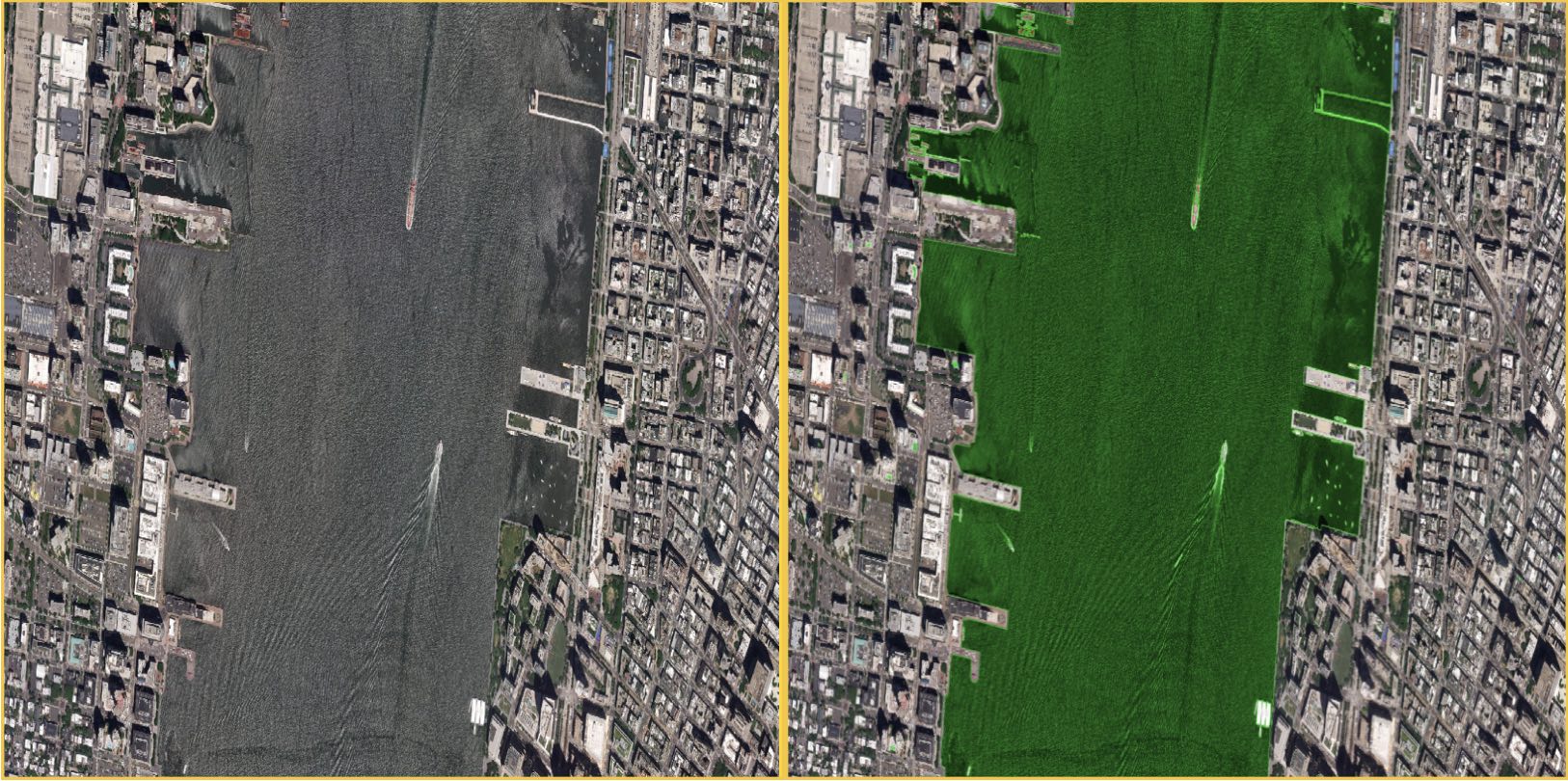Water Mask¶
Last updated: October 7, 2021
Example imagery¶
This example shows an ARD visual RGB 30cm WorldView-3 image, taken over New York Harbor.The image on the left is the original ARD tile. The image on the right shows the water mask overlaid on the image. Water is highlighted in green.

Left: ARD image of New York Harbor. Right: water mask overlaid on the image.
Overview¶
The Water Mask detects bodies of water and swimming pools. Water is detected from a 4 or 8 band multispectral image at the native resolution (GSD) collected from the satellite.
An ARD order delivery includes a raster GeoTiff mask and a vector GeoPackage mask. The vector mask is derived from the raster mask.
| Mask title | File name | File type | Description |
|---|---|---|---|
| Water Mask | {acquisitionID}-water.tif | Raster | Identifies detected water pixels. |
| Water Polygons | {acquisitionID}-water-mask.gpkg | Vector | Polygons that indicate detected bodies of water. |
How to read the mask data¶
The mask is binary with 1 (True) indicating the presence of water and 0 (False) indicating no water detected.
Classification/Detection¶
Water is detected through a variety of means, including spectral and spatial considerations. Traditional band indices and machine learning algorithms are used to identify the characteristics of water and search for similar pixels and patterns throughout the image.
Use case examples¶
Water masks can be a valuable tool for object detection analysis, such as ship detection.
The mask may aid with the separation of land pixels and water pixels for separate analyses.
Water can be highly variable due to specular reflection, waves or whitecaps, or changes in water chemistry (algal particulates or entrained sand and silt).
Known issues¶
In some cases, the algorithm may not easily differentiate dark areas, such as muddy water next to a road, dark water from a tree shadow, or dark shadows in a downtown area. Additionally, water pixels that are not connected to other water pixels may be misclassified; for example, if a small section of water is obstructed from the larger body of water by a bridge.